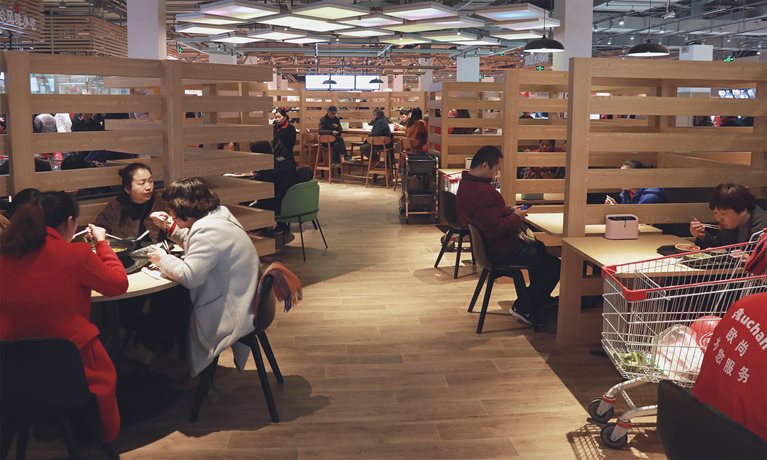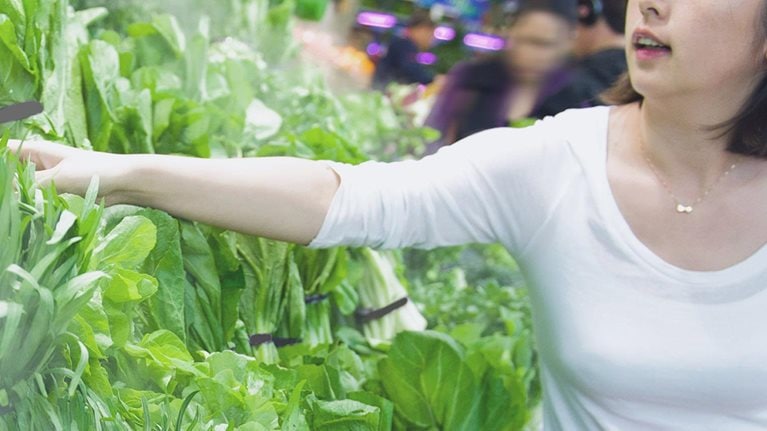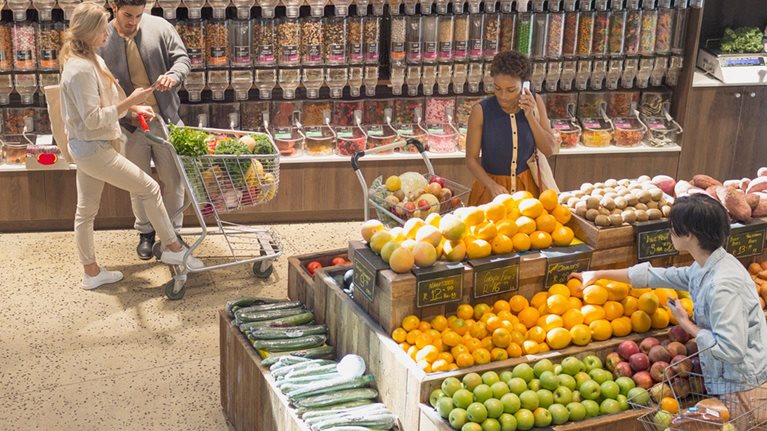Since joining the French retail group Auchan in 1991, Ludovic Holinier’s career has spanned several countries including Luxembourg, the United States, Russia, and, most recently, China. He is the executive chairman of Auchan Retail China, which is part owner (along with Alibaba) of Sun Art, China’s largest hypermarket chain. Holinier served as CEO of Sun Art from July 2017 until May 2019. Sun Art operates 400-plus hypermarkets across China under the banners Auchan and RT-Mart, and employs more than 140,000 people.
Holinier recently spoke with McKinsey’s Alex Sawaya in Hong Kong. He shared his perspectives on the future of food retailing, the power of business partnerships, and the China market’s speed and agility.
McKinsey: Think ahead to 2030. What will grocery retail look like in China?
Ludovic Holinier: It will be a mix of offline and online. Today the market share of online grocery is still very low—even in China, more than 90 percent of the business is still brick and mortar. In ten years, I think the penetration of online will be around 30 percent.
But stores won’t go away. In the past two years, something really changed in China: stores are cool again. Three or four years ago, everyone was convinced that the pure-play online model would be the winning model for grocery and fresh food all over the world—but that’s now been proved wrong, because nobody is making money delivering groceries and fresh food from big warehouses. [Alibaba’s] Hema, or Freshippo, proved that “new retail” has to be a mix of in store and online.
Another thing we’ll see in China is that restaurants will become the main competitors of grocers. Already, more than 21 million meals are delivered every day in China, and the habits of Chinese customers are changing. There are even new residential developments being built in which the apartments have no kitchens. So, a traditional grocery retailer will need to somehow become a restaurant or a catering company. In the coming years, we will need to completely redefine the company mission. As a retailer, we were about selling products. Going forward, we need to be about feeding people.
McKinsey: Those aren’t trivial changes. What concrete actions is Sun Art taking today to make sure it will be around—and thriving—in 2030?
Ludovic Holinier: Sun Art is refining its online-to-offline (O2O) offering to provide the best customer experience. Delivery is a big part of that. In 2018, we rolled out one-hour delivery from all our stores. We did it fast: we completed the rollout in nine months, with a task force of 300 people. Customers can now order groceries on their mobile devices, and their order will be delivered within the next hour at their home or office or wherever they are.
Delivery is efficient and convenient, and the prices are the same as in the store, so we have to create new reasons for customers to come to the store. We need to reinvent the customer experience in store. That means rethinking our product categories—which ones should we expand and which ones should we remove? We believe that we will have to focus more and more on fresh food, because the store is really the best place for that, and people in China are increasingly concerned about healthy eating and the quality of their food. We’re also piloting some in-store restaurants, and we’re really pushing our catering and delicatessen categories.
McKinsey: How will Sun Art’s and Auchan’s capabilities need to evolve between now and 2030?
Ludovic Holinier: We will obviously have to build strong digital capabilities. And as we monitor customer behavior online and develop a deeper understanding of our customers, we need to bring that knowledge into the store—for example, through a personalized in-store experience and personalized offers.
We will need to completely redefine the company mission. As a retailer, we were about selling products. Going forward, we need to be about feeding people.
At the same time, we need to develop capabilities in our core business of sourcing. We need to offer exclusive fresh products and reassure customers about what they are eating, where it comes from, how it was grown, how it was harvested.
A key point is that our digital capabilities must be national or global, but our in-store capabilities must be reinforced locally. We need to find ways to empower store directors to adapt locally so that our stores become more relevant to their local communities. If we build digital capabilities to improve operations—including automating and streamlining our back-office processes—we will free up the time and spirit and mind-set of our employees to “think local” and focus on taking care of customers.
Creating partnerships is also key. I believe the future of retail in China will be about building an ecosystem of capabilities and partnerships to deliver the best customer experience. There are some categories where we can’t, on our own, bring the best customer experience possible. For instance, in 2018 we signed a partnership with Suning, a leader in home appliances here in China, so that we can bring a best-in-class customer experience in our stores for home appliances.

What Chinese consumers want from fresh-food retailers
McKinsey: Indeed, Sun Art itself is a partnership now, being jointly owned by Auchan and Alibaba. Tell us how that partnership came about and how it’s working out so far.
Ludovic Holinier: In 2013, we started Feiniu, our own e-commerce platform. It was a failure; we lost a lot of money. We learned that developing digital capabilities and creating a strong online customer base, even for a retailer as big as Sun Art in China, takes a significant amount of time and money—and even after making big investments, you’ll still be a very small player in the market. That gave us the conviction that we cannot do it by ourselves, so we looked for a digital partner.
We wanted a local digital partner that understood Chinese customers. I think, at the same time, Alibaba’s experience with Hema helped Alibaba understand that offline retail is also complicated to manage—so both partners were convinced that the other partner can really bring something to the table.
One of the success factors in this partnership is trust. Transparency is key; everybody must feel free to say what needs to be said. We cooperate daily. At both Alibaba and Sun Art, there is a dedicated team focused on new retail, and the two teams work together. Alibaba didn’t come in and say, “OK, here’s how you will have to be organized, here’s what you need to do.” We are truly building something together every day. And the only KPI [key performance indicator] we are looking at and managing is customer satisfaction; we’re not focused on other metrics like number of orders or basket size. We know that if we deliver an excellent customer experience, the business will scale up fast.

Alibaba is not a company that cares only about technology. They are really what we call in French commerçant—they’re customer-centric and commercially savvy—and they have strong values, just like Auchan.
McKinsey: Your career in food retailing has spanned many countries. What lessons from China do you think are relevant to other markets?
Ludovic Holinier: I think many things are replicable in other countries, but many things also rely on the specificity of the digital ecosystem in China. Retail is very urban here, with the high population density. Delivery costs are low. Penetration of mobile payment is high—more than 45 percent—and people can use mobile payments almost anywhere. Almost everybody has a WeChat or Alipay QR code. That’s not yet the case in Western countries.
China’s speed is not a myth; it’s reality. People across the globe often say, “Think big, start small, and scale fast,” but in China, that’s just how people do things; it’s almost native. It’s how people manage their schedule, how they prioritize, how they work. In China, most of the products that come into the market are not perfect, but they get to the market very fast—and then they’re continuously refined and improved once they’re in the market. That kind of flexibility and agility will be valuable anywhere.

